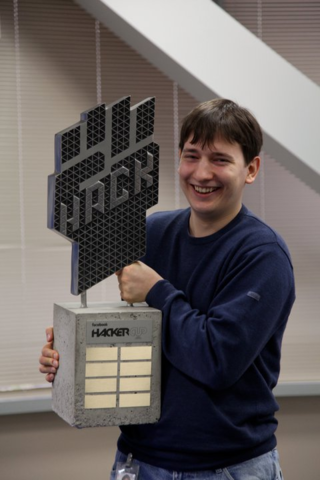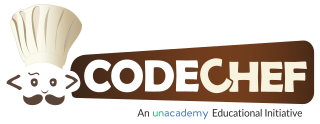
The International Olympiad in Informatics (IOI) is an annual competitive programming competition and one of the International Science Olympiads for secondary school students. The first IOI was held in 1989 in Pravetz, Bulgaria. It is the second largest science olympiad, after the International Mathematical Olympiad, in terms of number of participating countries. Each country sends a team of up to four students, plus one team leader, one deputy leader, and guests.

The International Collegiate Programming Contest, known as the ICPC, is an annual multi-tiered competitive programming competition among the universities of the world. Directed by ICPC Executive Director and Baylor Professor William B. Poucher, the ICPC operates autonomous regional contests covering six continents culminating in a global World Finals every year. In 2018, ICPC participation included 52,709 students from 3,233 universities in 110 countries.
Topcoder is a crowdsourcing company with an open global community of designers, developers, data scientists, and competitive programmers. Topcoder pays community members for their work on the projects and sells community services to corporate, mid-size, and small-business clients. Topcoder also organizes the annual Topcoder Open tournament and a series of smaller regional events.
Hong Kong Olympiad in Informatics is an annual programming competition for secondary school students in Hong Kong, emphasizing on problem solving techniques and programming skills. It is co-organized by the Hong Kong Association for Computer Education (HKACE) and the Hong Kong Education Bureau (EDB). It serves as a preliminary contest to international, national and regional competitions such as the China National Olympiad in Informatics (NOI) and the International Olympiad in Informatics (IOI). The first HKOI was held in 1997.
The United States of America Computing Olympiad (USACO) is an online computer programming competition, which serves as qualification for the International Olympiad in Informatics (IOI) in the United States of America. Primarily for secondary school students in the United States, the USACO offers four competitions during the academic year. Participants compete in four increasingly difficult divisions, each of which is provided a distinct set of 3 solvable competitive programming problems during each contest. Coding & submitting computer programs can be done in one of four languages: C, C++, Java, and Python. Competitors begin in the Bronze division, and advance through the levels by performing well in their current division.
PC² is the Programming Contest Control System developed at California State University, Sacramento in support of Computer Programming Contest activities of the ACM, and in particular the ACM International Collegiate Programming Contest. It was used to conduct the ACM ICPC World Finals in 1990 and from 1994 through 2009. In 2010, the ACM ICPC World Finals switched to using Kattis, the KTH automated teaching tool; however, PC2 continues to be used for a large number of ICPC Regional Contests around the world.

Google Code Jam was an international programming competition hosted and administered by Google. The competition began in 2003. The competition consists of a set of algorithmic problems which must be solved in a fixed amount of time. Competitors may use any programming language and development environment to obtain their solutions. From 2003 to 2007, Google Code Jam was deployed on Topcoder's platform. Since 2008 Google has developed their own dedicated infrastructure for the contest.
UVa Online Judge is an online automated judge for programming problems hosted by University of Valladolid. Its problem archive has over 4300 problems and user registration is open to everyone. There are currently over 100000 registered users. A user may submit a solution in ANSI C (C89), C++ (C++98), Pascal, Java, C++11 or Python. Originally it began without the last three options, but the Java option was added in 2001, the C++11 option was added in 2014, then the Python option was added in 2016.
SPOJ is an online judge system with over 1 million registered users and over 20,000 problems. Tasks are prepared by its community of problem setters or are taken from previous programming contests. SPOJ allows advanced users to organize contests under their own rules and also includes a forum where programmers can discuss how to solve a particular problem.

Petr Mitrichev is a Russian competitive programmer who has won multiple major international competitions. His accomplishments include gold and silver (2001) medals in the IOI, gold medals in the ACM ICPC World Finals as part of the team of Moscow State University and winning Google Code Jam (2006), the Topcoder Open, the Topcoder Collegiate Challenge, Facebook Hacker Cup as well as numerous national and online contests. He has achieved the highest rating ever among the Algorithm competitors of Topcoder and consistently ranks in the top two of the world. He is the second highest rated Algorithm coder on Topcoder ratings as of February 2021. He currently works at Google on the search engine and helps to prepare Code Jam.
Meta Hacker Cup is an annual international programming competition hosted and administered by Meta Platforms. The competition began in 2011 as a means to identify top engineering talent for potential employment at Meta Platforms. The competition consists of a set of algorithmic problems which must be solved in a fixed amount of time. Competitors may use any programming language and development environment to write their solutions.
Crowdsourcing software development or software crowdsourcing is an emerging area of software engineering. It is an open call for participation in any task of software development, including documentation, design, coding and testing. These tasks are normally conducted by either members of a software enterprise or people contracted by the enterprise. But in software crowdsourcing, all the tasks can be assigned to or are addressed by members of the general public. Individuals and teams may also participate in crowdsourcing contests.

Gennady Korotkevich is a Belarusian competitive sport programmer who has won major international competitions since the age of 11, as well as numerous national competitions. His top accomplishments include six consecutive gold medals in the International Olympiad in Informatics as well as the world championship in the 2013 and 2015 International Collegiate Programming Contest World Finals. As of October 2023, Gennady is the highest-rated programmer on Codeforces, CodeChef, Topcoder, AtCoder and HackerRank. In January 2022, he achieved a historic rating of 3979 on Codeforces, becoming the first to break the 3900 barrier.

CodeChef is an online educational and competitive programming platform. CodeChef started as an educational initiative in 2009 by Directi, an Indian software company. In 2020, it was purchased by Unacademy.

Topcoder Open (TCO) was an annual design, software development, data science and competitive programming championship organized by Topcoder, and hosted in different venues around US. In the first two years, 2001 and 2002, the tournament was titled TopCoder Invitational.
Codeforces is a website that hosts competitive programming contests. It is maintained by a group of competitive programmers from ITMO University led by Mikhail Mirzayanov. Since 2013, Codeforces claims to surpass Topcoder in terms of active contestants. As of 2019, it has over 600,000 registered users. Codeforces along with other similar websites are used by some sport programmers, like Gennady Korotkevich, Petr Mitrichev, Benjamin Qi and Makoto Soejima, and by other programmers interested in furthering their careers.
Makoto Soejima is a Japanese former competitive programmer. He is one of three people to have won both the Google Code Jam and the Facebook Hacker Cup and the only one to have also won a gold medal with a perfect score at the International Mathematical Olympiad (IMO). In International Science Olympiads, he has won three gold medals and one bronze in the International Mathematical Olympiad as well as two silver medals in the International Olympiad in Informatics (IOI).

Harsha Suryanarayana, popularly known as "humblefool" in the coding community, was an Indian programmer who is often considered to be "India's greatest coder".
Tiancheng Lou is a Chinese businessman who is the co-founder and chief technology officer of Pony.ai, an autonomous vehicle technology company. He is also a competitive programmer whose achievements include winning the Google Code Jam twice in 2008 and 2009, winning the Topcoder Open Marathon in 2015 and being a gold medalist at the 2004 International Olympiad in Informatics, coming third overall. In terms of prize money won in major competitions, Lou is currently the most successful competitive programmer from China.
Andrew He is an American competitive programmer and the winner of the 2021 Facebook Hacker Cup.








